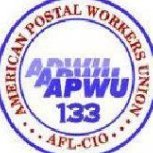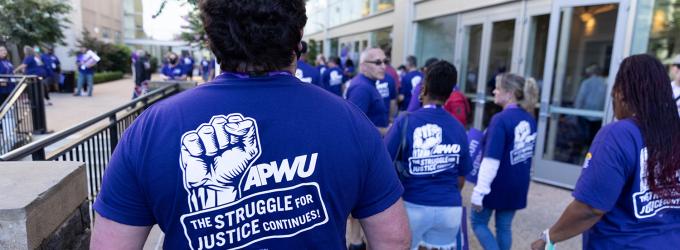- 0 replies
- 674 views
- Add Reply
- 0 replies
- 778 views
- Add Reply
- 0 replies
- 1,013 views
- Add Reply
- 0 replies
- 879 views
- Add Reply
- 0 replies
- 684 views
- Add Reply
Third quarter participant statements available online by the end of October

Your third quarter 2023 participant statement, covering account activity from July 1 through September 30, 2023, will be available in My Account by the end of October. You’ll receive an email when your statement posts to your secure participant mailbox and is available for download.
2023 Virtual Open Season Health Fairs


Welcome to Open Season 2023! |
Making Sense of Change in the Postal Service

It is no secret that the Postal Service is making changes. One constant that I have experienced throughout my career with the USPS is that the Postal Service evolves and changes. I am a fourth-generation postal employee. When I was a young boy in the early 1970s, I have memories of my father taking me to the Post Office in Salt Lake City and seeing nothing but clerks sorting mail by hand in letter cases. Today, that building is full of automated machines. Automation has changed the Postal Service over the decades.
Today, the Postal Service is in a state of change. Mail type is shifting from letters and flats to parcels. Overall, all mail volume is down. But no matter the shift in mail type or decrease in volume, the public deserves a Postal Service that meets its universal service obligation, delivers mail on time, and functions as a true public service.
The current Postmaster General (PMG) is making decisions that are putting APWU-represented employees in a state of flux. He believes that his plan will increase volume (at least parcel volume), speed up parcel delivery (and therefore speed up all mail delivery), and put the USPS on a sounder financial footing. He is calling his plan “Network Modernization.”
As the PMG continues to push these changes, the APWU continues to demand that our contract is followed, that the Postal Service be transparent, and that the Postal Service allow the public to have input, and more.
As the PMG changes are implemented, the Postal Service has sought to excess employees from their installations to other offices. Your Regional Coordinators have led APWU efforts to minimize the impact and disruptions on those who could be excessed. Even in the face of postal management that uses tactics that at best can be described as inaccurate, Regional Coordinators have reduced the numbers of employees excessed overall. They prepare for each event and work relentlessly on your behalf.
We know that the Postal Service is not being fully transparent about their plans. Even though they do meet with the APWU at the national level regularly, they refuse to provide the most basic information we request. We have filed charges with the National Labor Relations Board (NLRB) to compel them to provide the information we have demanded.
For some of these network changes, the Postal Service is required to inform the public and allow their input on changes to the network. The Postal Service must follow guidelines outlined in the PO-408 manual. We have insisted that the Postal Service follow this manual. Of course, management pushed back against our demands. The Postal Service did eventually capitulate and agree that the PO-408 would be followed. But rather than follow the process, they chose to change the rules and make significant changes to the PO-408. After extensive review and coordination with our legal counsel, we have filed a national dispute on these changes.
Finally, it is important that your national officers get out and see these new facility types, talk to the workers at these new facilities, and learn all we can about the new facilities. Recently, we visited with the new Sortation and Delivery Center (S&DC) in Annapolis, MD. This was the first of our visits to the S&DCs that are currently operating around the country. National officers and headquarters staff are currently planning more visits to both the S&DCs and the Regional Processing and Distribution Centers as they come online.
Your union officers will continue to work hard during these changing times to protect your rights under the CBA, and to take the fight to the streets with our public allies to protect our right to an effective and efficient Postal Service.
USPS Life Insurance Information

The Federal Government established the Federal Employees' Group Life Insurance (FEGLI) Program on August 29, 1954. It is the largest group life insurance program in the world, covering over 4 million Federal employees and retirees, as well as many of their family members.
Most employees are eligible for FEGLI coverage. FEGLI provides group term life insurance. As such, it does not build up any cash value or paid-up value. It consists of Basic life insurance coverage and three options. In most cases, if you are a new Federal employee, you are automatically covered by Basic life insurance and your payroll office deducts premiums from your paycheck unless you waive the coverage. In addition to the Basic, there are three forms of Optional insurance you can elect. You must have Basic insurance in order to elect any of the options. Unlike Basic, enrollment in Optional insurance is not automatic -- you must take action to elect the options.
The cost of Basic insurance is shared between you and the Government. You pay 2/3 of the total cost and the Government pays 1/3. Your age does not affect the cost of Basic insurance. You pay the full cost of Optional insurance, and the cost depends on your age.
The Office of Federal Employees' Group Life Insurance (OFEGLI), which is a private entity that has a contract with the Federal Government, processes and pays claims under the FEGLI Program
Your COLA is here!


Your COLA is here!
Today career USPS workers covered by the APWU-USPS contract are seeing a paycheck with more money today. Whether it’s your car payment, gas to get to work, or maybe extra food in the pantry - this bump is because members said “we need wages that respect our work.”
We have to tell the story that this increase is thanks to members fighting at the bargaining table. By coming together in our union, we can collectively demand improvements that we wouldn’t win.
We can make changes if we come together. If you're not yet an APWU member join today.
If you are already a member, text 91990 to commit to ask a not-yet-union coworker to join our movement.